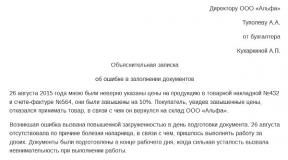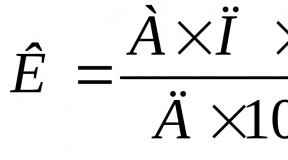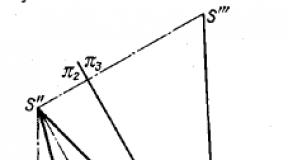Can I be fired from a job for smoking or talking on the phone. Smoking can get fired Fired for smoking
More than forty million people across Russia use tobacco products, and many of them believe that the smoking bans, which came into force after the adoption of the Federal Law of February 23, 2013 N 15-FZ, infringe on their civil rights and freedoms.
Measures taken to protect the health of others include limiting smoking:
- in land and air transport;
- on the territory of railway stations;
- in any public organizations (cultural, educational, etc.);
- in public service buildings;
- at the entrances, at workplaces (in production, in offices, and so on).
What does the letter of the law say about liability for smokers? What actions of employers are legal, and what - completely illegal?
Legal regulation
According to the first and second paragraphs of Article 10 of Federal Law No. 15-FZ, an employer (individual entrepreneur, legal entity or official) is obliged to protect the health of his subordinates and either completely prohibit smoking at work or organize special places for these purposes.
In addition to the so-called “anti-tobacco law”, smoking in the workplace is regulated by the Code of Administrative Offenses.
For non-compliance with fire safety rules and violation of sanitary and hygienic standards, a negligent employer faces a warning or an administrative fine, and the regulatory authorities will rely on articles 5.27, 20.4 and 6.3.
A boss can set up specially designated areas for his nicotine-addicted employees or completely ban smoking at work completely legally.
Smoking areas
Being the owner of the building and the adjacent territory, he can meet the needs of the employees and, in accordance with all the rules, equip:
- sheds, gazebos, outdoor pavilions;
- rooms equipped with a powerful exhaust system.
The organization of “smoking rooms”, marked with a special sign, is the good will of the employer, his right, not his obligation.
When such places do not exist, workers independently look for a secluded corner, go away from the office / workshop. But in such cases, an employee can legally be accused of violating the work schedule if smoking takes place outside the lunch break.
Smoking fine
After the anti-tobacco law came into force, law enforcement officers can to fine any citizen for smoking in a public place.
The largest amount is set if tobacco smoke is distributed on a playground or a smoker involves minors in a harmful process (buys cigarettes or treats them, promotes a bad habit).
But subtracting a certain amount from - absolutely illegal. Penalties at work (for smoking or any other act) are completely contrary to labor laws.
An increase in working time (for example, by an hour) also goes against the Labor Code of the Russian Federation, since the normal duration is violated, processing takes place. healthy lifestyle advocates to encourage smokers to quit - discrimination.
Such violations of the Labor Code, in turn, can result in fines for officials and the organization as a whole.
Employee Responsibility
 An individual entrepreneur, legal entity or official does not have the right to bring a smoking employee to administrative responsibility (recover
An individual entrepreneur, legal entity or official does not have the right to bring a smoking employee to administrative responsibility (recover
The composition of the narcotic substance and its weight are established by the expert examination. Article 231 of the Criminal Code provides:
- a fine in the amount of two years of income or up to 300 thousand rubles;
- up to 480 hours of compulsory work;
- up to two years of restriction or imprisonment.
For a group crime or storage / cultivation on an especially large scale, imprisonment of up to 8 years is provided. Other cases of liability for drug use A person who escaped liability under Art. 6.9 and who evades drug dependence treatment falls under Article 6.9.1 of the Administrative Code. For refusal of treatment or non-compliance with the instructions of the attending physician more than two times in a row, a penalty in the form of a fine of 4-5 thousand rubles or administrative arrest for up to 30 days is provided.
Smoking can get you fired
Good evening. I have a question about layoffs. I work at the Trade Center. Stood smoking in the parking lot in her work clothes. At this time, the General Manager of the shopping center drove by and took a picture of me. Then I sent a report about this to my director with claims that I smoke.
Now they demand a fine of 3000 from me and fire me. Do they have the right to do so? I did not know about the ban on smoking in the parking lot and I was not warned. I work on a temporary contract. Can they demand from me both dismissal and a fine? Reply Hi Elizabeth.
If a smoking ban has been introduced in the shopping center, such a ban must be established by a local act (for example, the internal labor regulations of the shopping center). You indicated that you did not know about the ban. It turns out that during employment you were not familiar with the relevant document against signature or signed it “without looking”.
Can an employer fire you for smoking?
For no offense. “As for the system of fines used at some enterprises (reduction of wages, for example, for being late, for non-compliance with the dress code, etc.), this is clearly illegal,” Rostrud explained to RG. - In accordance with Part 1 of Art. 192 of the Labor Code, the employer can apply only three types of disciplinary sanctions: remark; rebuke; dismissal. This list is exhaustive and mandatory for all companies, with the exception of certain categories of employees (military personnel, civil servants, etc.). Another picture recently with smoking. An anti-tobacco law came into force in July.
He banned smoking in workplaces and indoor work areas. For example, in medical, educational buildings and on the territory adjacent to them, smoking is unambiguously prohibited. True, the law allows some concessions.
Can I be fired for smoking during work hours and fined?
For the commission of a disciplinary offense, that is, the employee’s failure to fulfill the labor duties assigned to him through his fault, the employer has the right to apply dismissal on appropriate grounds (Article 192 of the Labor Code of the Russian Federation). Disciplinary sanctions include: dismissal of an employee on the grounds provided for in paragraphs 5,6,9 or 10 of Article 81, paragraph 1 of Article 336 or Article 348.11 of the Labor Code of the Russian Federation, as well as paragraph 7 or 8 of Article 81 of the Labor Code of the Russian Federation in cases where the guilty actions that give grounds for loss of trust, or, accordingly, an immoral act committed by the employee at the place of work and in connection with the performance of his labor duties. It is not allowed to apply disciplinary sanctions that are not provided for by federal laws, charters and regulations on discipline.
When imposing a disciplinary sanction, the gravity of the misconduct committed and the circumstances under which it was committed must be taken into account.
Smoking in the workplace - what does the law say?
This was reported in the press service of the Sevastopol garrison military court. The young man admitted his guilt, explaining that he smoked marijuana in one of the city bars. The fact of using "weed" was also confirmed by a chemical-toxicological study.
The court explained that, according to the law "On Narcotic Drugs and Psychotropic Substances", their use is prohibited in Russia without a doctor's prescription. In addition, the charter of the internal service of the Military Forces of the Russian Federation establishes that each serviceman must take care of maintaining his health, not hide illnesses, strictly observe the rules of personal and public hygiene, refrain from smoking and drinking alcohol, and not allow the use of narcotic drugs and psychotropic substances.
What is the punishment for the use of weed in Russia under the article
When applying for a job, I was clearly told: you work until you get married and are not going to give birth. As soon as you write a statement right away, ”a former employee of one of the companies told RG. Indeed, the girl had to quit after a couple of years.
We have a stupid dress code. Well, okay, uniform skirts and vests - it's still possible to survive. But they entered into our contract a requirement to wear bright orange tights. And after all, they wore it, where can you go! It’s good that after a couple of months their stocks ran out, and the company did not buy new ones.
To be honest, we tore them on purpose, ”shared a young employee of another reputable company. “And we have introduced electronic passes, and now they make automatic deductions from the salary for a two-minute delay,” says another RG interlocutor.
The penalty is imposed by the court! Your dismissal will also be illegal. When punishing an employee, the severity of his misconduct and the circumstances of its commission must be taken into account without fail. Dismissal "under the article" is carried out on the basis of paragraphs.
5-10 Art. 81
TK RF. It is not permissible to apply a punishment that is not provided for by law, the charter and the regulation of the shopping center on labor discipline. Therefore, dismissal for smoking is unlawful! So, you do not need to write a letter of resignation. If the employer dismisses you “under the article” and / or withholds a “fine” from your salary, you must immediately go to court to appeal against the unlawful actions of the shopping center management, in accordance with Art.
392 of the Labor Code of the Russian Federation. All the best.
Getting fired for smoking weed
Code and other federal laws. For this violation, you may be subject to disciplinary liability. Article 192. Disciplinary sanctions For committing a disciplinary offense, that is, failure to perform or improper performance by an employee through his fault of the labor duties assigned to him, the employer has the right to apply the following disciplinary sanctions: 1) remark; 2) reprimand; 3) dismissal on appropriate grounds. For example, the first time you will be reprimanded. And for the second time they have the right to dismiss Article 81. Termination of the employment contract at the initiative of the employer An employment contract can be terminated by the employer in the following cases: ... 5) the employee repeatedly fails to fulfill his labor duties without good reason, if he has a disciplinary sanction; ... "Hello! The employer has the right to dismiss on the grounds established by Art.
Important
If a child was caught in a drugged state, then they will deal not with him, but with his parents: in addition to the fine for the very fact of the offense, they will additionally have to pay for an irresponsible attitude to raising their child. A “bonus” to a fine or being under administrative arrest is the setting registered with the drug dispensary. The law provides for exemption from liability if a person who is addicted to drugs voluntarily expresses a desire to be free from addiction and turns to a medical institution. Liability is removed even after the administrative proceedings have already begun, in the event that the offender agrees to undergo appropriate examination and treatment.
Can an employer fire an employee for smoking tobacco in the workplace? Pursuant to Article 6 of Federal Law No. 87-FZ of July 10, 2001, “On Restricting Tobacco Smoking” (hereinafter referred to as Law No. 87-FZ), in order to reduce the harmful effects of tobacco smoke, it is prohibited to smoke tobacco at workplaces. The employer is responsible for equipping specially designated areas for smoking tobacco. Violation of the provisions of Article 6 of Law No. 87-FZ entails bringing to administrative responsibility in accordance with the law.
According to Article 189 of the Labor Code of the Russian Federation (hereinafter referred to as the Labor Code of the Russian Federation), labor discipline is obligatory for all employees to obey the rules of conduct determined in accordance with labor legislation, other federal laws, collective agreements, agreements, local regulations, labor contract.
If you have not signed a document establishing a ban on smoking, then the management of the shopping center is not entitled to apply any penalties to you. If you signed without looking, you can be “punished”. According to Part 1 of Art. 192 of the Labor Code of the Russian Federation (hereinafter referred to as the Labor Code of the Russian Federation), management has the right to apply the following types of disciplinary punishments: reprimand, reprimand, dismissal. Thus, the management is not entitled to collect a fine from you, since such a measure of punishment is not provided for by the Labor Code of the Russian Federation. In accordance with Art. 6 of the Federal Law No. 87 "On the restriction of tobacco smoking", smoking is prohibited in the workplace. At the same time, the head of the organization is obliged to allocate a special place for smoking. That is, both you and the management of the shopping center can be held administratively liable.
You - for smoking in the wrong place, and the manager - for not allocating a place for smoking.
The statute of limitations for the offense is 1 year, during this period of time the smoker can be held liable if the fact of the offense is proven;
- Art. 20.20 - provides for liability for persons who decide to smoke weed in a public place - at a disco, in a park, square, etc. They are provided with a fine in the amount of one to one and a half thousand rubles, the statute of limitations for the offense is two months;
- articles 20.21 and 20.22 provide for liability for drunken walks, the first for adults, the second for minors under the age of 16. The statute of limitations for both articles is 2 months, with a proven offense, adults will face a fine of up to 500 rubles or arrest for 15 days.
To fine the employee for being late or other sins, his management is not entitled. But for smoking in the workplace, recently it can be fired.
“When applying for a job, I was clearly told: you work until you get married and are about to give birth. As soon as you write an application," a former employee of one of the companies told RG. Indeed, the girl had to quit after a couple of years.
“We have introduced a stupid dress code. Well, okay, uniform skirts and vests - you can still survive. But they entered into our contract a requirement to wear bright orange tights. dried up, and the company did not buy new ones. To be honest, we tore them on purpose, ”shared a young employee of another reputable company.
“And we have introduced electronic passes, and now they make automatic deductions from the salary for a two-minute delay,” says another source of RG.
Employers, especially if the top managers in the company are young, creative, who have seen enough of various differences in foreign internships, often bring all sorts of "innovations" to our Russian soil. So what if in some Japanese corporations all employees sing the anthem of their native company before the start of the working day? This does not mean at all that we all need to “introduce” such methods everywhere to unite the team ...
The employer, of course, can introduce certain requirements for employees. That's why there are internal regulations. Let's say that the same uniform (or dress code, to use Newspeak) has existed in Russia for a long time - among railway workers, in airlines. Requirements such as "black bottom - white top and a cunningly tied handkerchief on the side" also took root in banks.
In all these cases, the introduction of a standard in clothing is justified - when you work with people, and it is convenient for both parties if you are easily recognized "by clothes." But in order for this requirement to be within the law, firstly, it must be spelled out in the internal regulations and included in the text of the employment contract. And secondly, the company must supply uniforms (including the same orange tights ...) to its employees. And no payroll deductions.
As for the requirement not to have a "pregnant" belly, to keep weight, not to wear a beard (it happens in companies and such exotic!) - this is already in direct conflict with the labor law. Moreover, they do not have the right to punish an employee for non-compliance with the dress code. Because the Labor Code provides for penalties for improper performance of duties, and not at all for "improper" appearance ... It is also illegal to fine employees. For no offense.
As for the system of fines used at some enterprises (reduction of wages, for example, for being late, for non-compliance with the dress code, etc.), this is clearly illegal, Rostrud explained to RG. - In accordance with Part 1 of Art. 192 of the Labor Code, the employer can apply only three types of disciplinary sanctions: remark; rebuke; dismissal. This list is exhaustive and mandatory for all companies, with the exception of certain categories of employees (military personnel, civil servants, etc.).
Another picture recently with smoking. An anti-tobacco law came into force in July. He banned smoking in workplaces and indoor work areas. For example, in medical, educational buildings and on the territory adjacent to them, smoking is unambiguously prohibited.
True, the law allows some concessions. Thus, the owner of a property (in other words, a building) or a person authorized by him to manage this property can decide and allow smoking in specially designated outdoor areas or in isolated rooms equipped with ventilation. The owner, going towards the smoking part of the team, will have to spend a lot on a powerful hood. The law requires that smoking rooms comply with hygienic standards for the content of traces of tobacco smoke in the air.
A very strict approach, by the way, is also within the framework of the law: individual entrepreneurs and legal entities have the right to establish a complete ban on smoking in the territories and premises. So everything depends on the good will of the authorities.
Egor Ivanov, head of the legal department of Rostrud:
For employees, the administration has the right to apply incentive measures aimed at stopping smoking. A complete ban, as well as incentive measures, is formalized by a local regulatory act (for example, internal labor regulations), with which employees must be familiarized against signature.
Violation of the requirements of the anti-tobacco law also provides for disciplinary liability (Article 23). This means that an employee may be subject to disciplinary action for smoking in undesignated places on the territory of the employer. Based on Part 1 of Art. 192 of the Labor Code, the employer has the right to apply three types of such penalties: reprimand, reprimand and dismissal. But the law does not allow to fine an employee in this case. The employer is not entitled to impose a fine, since such a measure of disciplinary responsibility is simply not provided for in the Labor Code. The list of types of disciplinary sanctions is exhaustive, and it is not planned to revise it yet.
Smoking is a very common bad habit: people smoke both during leisure and at work. To limit the negative impact of tobacco smoke on non-smoking workers, as well as to eliminate other negative consequences of smoking during the working day, special rules have been established by law.
What regulations govern smoking during working hours? What is the responsibility for their violation?
The right to smoke at work
Federal Law No. 10.07.200187-FZ "On the restriction of tobacco smoking"(Further - Federal Law No.87-FZ) defines the legal basis for restricting tobacco smoking in order to reduce the incidence of the population. Tobacco smoking refers to the inhalation of smoke from smoldering tobacco products. Ambient tobacco smoke is defined as tobacco smoke contained in the ambient air of enclosed spaces in which tobacco is smoked.
Note:
Tobacco products are products for smoking, chewing or sniffing, packed in consumer packaging, including filtered cigarettes, non-filtered cigarettes, cigarettes, cigars, cigarillos, pipe tobacco, smoking tobacco, shag (smoking grist).
According to Art. 6 of Federal Law No.87-FZ to reduce the harmful effects of tobacco smoke prohibited tobacco smoking in the workplace , in urban and suburban transport, in air transport with a flight duration of less than three hours, indoor sports facilities, healthcare organizations, cultural organizations, on the territories and premises of educational organizations, in premises occupied by public authorities, with the exception of tobacco smoking in specially designated for this places.
Note:
According to Art. 209 of the Labor Code of the Russian Federation the workplace is the place where the employee must be or where he needs to arrive in connection with his work and which is directly or indirectly under the control of the employer.
At the same time, in paragraph 2 of Art. 6 of Federal Law No.87-FZ the employer is obliged to equip specially designated areas for smoking tobacco.
There is some controversy regarding the employer's ability to ban smoking at work altogether. Some experts note that such a ban, established in a local legal act, will be legal. However, in our opinion, the right of the employee to smoke in specially designated places for this directly follows from the law, and the employer is directly obliged to create such places. In addition, the acts discussed below provide for the mandatory creation of smoking areas, which confirms our point of view.
As for the time for smoking, these can be breaks specially set by the employer for this, or any other breaks for rest. Recall that due to Art. 91 Labor Code of the Russian Federation working time is the time during which the employee, in accordance with the internal labor regulations and the terms of the employment contract, must perform labor duties, as well as other periods of time that, in accordance with the Labor Code of the Russian Federation, other federal laws and regulatory legal acts of the Russian Federation, relate to working time. Rest time is understood as the time during which the employee is free from the performance of labor duties and which he can use at his own discretion. According to Art. 107 Labor Code of the Russian Federation types of rest time are breaks during the working day (shift), daily (between shifts) rest, days off (weekly continuous rest), non-working holidays, holidays. There are no designated smoking breaks.
Smoking areas
First of all, it is necessary to turn to fire safety standards. Yes, in clause 6 of the Fire Safety Rules (PPB 01‑03) approved Order of the Ministry of Emergency Situations of the Russian Federation dated June 18, 2003 No.313 , it is established that each facility should develop instructions on fire safety measures for each explosion and fire hazardous and fire hazardous area (workshop, workshop, etc.) in accordance with Appendix 1 to this document. According to Appendix 1, instructions on fire safety measures should be developed on the basis of fire safety rules, regulatory, technical, regulatory and other documents containing fire safety requirements, based on the specifics of the fire hazard of buildings, structures, technological processes, technological and production equipment. The instructions on fire safety measures, among other issues, should reflect issues related to smoking areas, the use of open flames and hot work. In addition, the rules clause 15 of the Fire Safety Rules each organization is obliged by an administrative document to establish a fire regime corresponding to their fire hazard, including smoking areas must be identified and equipped. Thus, fire safety rules impose on the employer the obligation to determine in local acts and specially equip smoking areas.
Note:
Fire Safety Rules establish fire safety requirements that are mandatory for application and execution, including by organizations, regardless of their organizational and legal forms and forms of ownership, their officials, entrepreneurs without forming a legal entity in order to protect the life or health of citizens, property of individuals or legal entities, state or municipal property, environmental protection.
There are also provisions on smoking areas in Sanitary and Epidemiological Rules SP 2.2.1.1312-03, approved by the Chief State Sanitary Doctor of the Russian Federation on April 22, 2003 No. 88. Among the requirements for administrative and amenity buildings and premises there is the following: smoking areas are designed during the work of all groups of production processes and, in order to avoid contact of non-smokers with tobacco smoke, are isolated from all sanitary and amenity premises .
In addition, there are legal regulations that establish specific requirements for smoking areas. For example, smoking areas should be well ventilated so that tobacco smoke does not interfere with other workers doing their jobs. The requirements for such a system are SNiP 31‑05‑2003. Public buildings for administrative purposes adopted and put into effect Decree of the Gosstroy of the Russian Federation dated June 23, 2003 No.108 , according to which the volume of outdoor supply air must be at least 10 rpm during working hours (in maintenance mode) and 0.5 rpm during non-working hours (in idle mode). That is, the ventilation system should provide an air exchange volume of 10 cubic meters. m/h According to a document such as SP 44.13330.2011. Set of rules. Administrative and household buildings. Updated version of SNiP 2.09.04‑87 approved Order of the Ministry of Regional Development of the Russian Federation dated December 27, 2010 No.782 , the air temperature in smoking rooms during the cold season should be at least 16 ° C, and the air exchange rate is at least 10 per hour. The design temperature and humidity in the warm period of the year are not standardized. In addition, it is stipulated that the distance from workplaces in industrial buildings to smoking rooms should be no more than 75 m, for disabled people with impaired functioning of the musculoskeletal system and the blind - no more than 60 m, and from workplaces on the territory of the enterprise - no more than 150 m. As for the area of smoking rooms at latrines or rest rooms, it should be 0.02 square meters. m per person.
Mandatory and fire safety signs defined GOST R 12.4.026-2001 adopted and put into effect Decree of the State Standard of the Russian Federation of September 19, 2001 No.387‑st. In smoking areas at production facilities, there should be a prescriptive sign M 15 “Smoking here”. In places where smoking can cause a fire, on the doors and walls of rooms, areas where there are combustible and flammable substances, or in rooms where smoking is prohibited, the sign P 01 "Smoking is prohibited" is placed.
Liability issues related to smoking in the workplace
Paragraph 3 of Art. 6 of Federal Law No.87-FZ it is established that violation of the provisions on the prohibition of tobacco smoking in the workplace, as well as the employer's failure to fulfill the obligation to create special places for smoking, entails administrative liability in accordance with the law. However, the Code of Administrative Offenses of the Russian Federation does not provide for special measures of responsibility for these acts.
Some experts believe that an employer who violates the rules on designated smoking areas can be held liable under Art. 5.27 "Violation of the legislation on labor and labor protection" of the Code of Administrative Offenses of the Russian Federation, according to which violation of labor and labor protection legislation entails the imposition of an administrative fine in the amount of:
For officials - from 1,000 to 5,000 rubles;
For persons engaged in entrepreneurial activities without forming a legal entity - from 1000 to 5000 rubles. or administrative suspension of activities for up to 90 days;
For legal entities - from 30,000 to 50,000 rubles. or administrative suspension of activities for up to 90 days.
Violation of the legislation on labor and labor protection by an official who was previously subjected to administrative punishment for a similar administrative offense entails disqualification for a period of one to three years.
Failure to comply with the requirements regarding smoking areas provided for by fire safety rules may result in liability for Art. 20.4 "Violation of fire safety requirements" of the Code of Administrative Offenses of the Russian Federation. Thus, for violation of fire safety requirements, a warning or an administrative fine is established in the amount of:
For citizens - from 1,000 to 1,500 rubles;
For officials - from 6,000 to 15,000 rubles;
For legal entities - from 150,000 to 200,000 rubles.
In accordance with Art. 6.3 "Violation of the legislation in the field of ensuring the sanitary and epidemiological welfare of the population and the legislation on technical regulation" of the Code of Administrative Offenses of the Russian Federation anti-epidemic measures, entails a warning or the imposition of an administrative fine in the amount of:
For citizens - from 100 to 500 rubles;
For officials - from 500 to 1,000 rubles;
For persons engaged in entrepreneurial activities without forming a legal entity - from 500 to 1000 rubles. or administrative suspension of activities for up to 90 days;
For legal entities - from 10,000 to 20,000 rubles. or administrative suspension of activities for up to 90 days.
As for the employee, for violating the rules on smoking, namely for smoking outside special places or at unspecified times, he can be brought by the employer in the prescribed manner to disciplinary responsibility. According to Art. 192 Labor Code of the Russian Federation for committing a disciplinary offense, that is, for failure to perform or improper performance of the labor duties assigned to the employee, the employer has the right to apply to him such disciplinary sanctions as a remark, reprimand, dismissal on appropriate grounds. AT paragraph 35 of the Resolution of the Plenum of the Supreme Court of the Russian Federation of 17.03. 2004 no.2 "On the application by the courts of the Russian Federation of the Labor Code of the Russian Federation" this definition of a disciplinary act is concretized. Thus, the employee’s failure to perform labor duties without good reason is understood as the failure to perform or improper performance due to the fault of the employee of the labor duties assigned to him (violation of the requirements of the law, obligations under an employment contract, internal labor regulations, job descriptions, regulations, orders of the employer, technical rules, etc.). . P.). That is, a ban on smoking outside special smoking areas or at the wrong time should be provided for in the internal labor regulations or other local act. Otherwise, the employee cannot be held disciplinary liable.
In conclusion, we note that smoking in the workplace is prohibited by law. At the same time, the employer is obliged to create special smoking areas in accordance with established requirements. Issues of liability for violation of these provisions are not worked out in the current legislation. So, there are no special measures of administrative responsibility, only the norms of responsibility for violation of fire-prevention, sanitary-epidemiological and other legislation can be applied. For violation of the rules on smoking, an employee can only be brought to disciplinary liability in accordance with the norms of the Labor Code of the Russian Federation.
Anatoly Pavlovich SHEVCHENKO, lawyer of the Chun branch of the Irkutsk Regional Bar Association (IOKA), answers questions from readers.
I work in a government agency and go out of the building several times during the day for a smoke break. Recently, the boss began to make claims to me about my absence from the workplace due to smoke breaks. Tell me, do I not have the right to dispose of the time of rest at my own discretion? Can I be banned from smoking at work?
Undoubtedly, smoking is a very bad habit, widespread in our time, because people smoke both at work and outside of work. The Law "On the Restriction of Tobacco Smoking" gives the concept of tobacco smoking - this is the inhalation of the smoke of smoldering tobacco products, which include cigarettes with and without filters, cigarillos, cigarettes, smoking and pipe tobacco, shag, and so on. The above law prohibits smoking in urban, suburban, air transport, on the territories and premises of educational institutions, public authorities, in indoor sports facilities, cultural and health institutions, as well as in workplaces, with the exception of special places reserved for this.
The Labor Code (Labor Code of the Russian Federation) determines that the workplace is the place where an employee should be, where he should arrive in connection with his work, and which is directly or indirectly controlled by the employer (Article 209 of the Labor Code of the Russian Federation). The time for smoking can be determined by the head in the form of special breaks. Also, the employee can use the time in any other breaks for rest. Working time (Article 91 of the Labor Code of the Russian Federation) means the time at which an employee must perform his job duties, as well as other periods that, according to the law, relate to working time. Rest time is the time when an employee is free from performing duties and can use it at his own discretion (breaks during the working day, daily rest, weekends, non-working and holidays, vacations (Article 107 of the Labor Code of the Russian Federation). But note that Labor The code does not establish special breaks for smoking.
On June 1, 2013, Federal Law No. 15-FZ “On Protecting the Health of Citizens from Exposure to Secondhand Tobacco Smoke and the Consequences of Tobacco Consumption” came into force, prohibiting smoking at workplaces and work areas. However, an employee who violates the provisions of this law cannot be fired. At the same time, an employee can be fired for non-compliance with the local act of the employer, brought to the attention of employees, that is, internal labor regulations and / or gross violation of fire safety rules. To do this, the local act of the employer must contain a ban on smoking outside designated special smoking areas (paragraph 3 of part 1 of article 10 of the law, paragraph 14 of the fire regime rules in the Russian Federation, approved by Decree of the Government of the Russian Federation of 04.25.2012 N390) and outside the time set by the employer for smoke breaks (Article 107 of the Labor Code of the Russian Federation).
An employee who violates such provisions is subject to disciplinary action in accordance with the rules of Article 193 of the Labor Code of the Russian Federation. If an employee has a disciplinary sanction, he can be deprived of his bonus (in whole or in part) for non-compliance with one of the bonus conditions established by the regulation on remuneration and bonuses of the company, or dismissed under part 5 of article 81 of the Labor Code of the Russian Federation. Also know that in the event of your next smoke break at the workplace at the wrong time, the manager can easily accuse you of being absent from the workplace. For this, you can easily get a remark or reprimand.
Of course, for smokers, the boss can officially allow smoking in specially designated areas. But for the employer, this option is the least acceptable, since allowing smoking means that employees will use this opportunity every hour, which will lead to a reduction in working hours by one and a half to two hours. You will not deny that in order for you to smoke, you have to get dressed, leave the building, go to the smoking room, smoke, talk about life with smoking colleagues and return to the workplace. Already, the working day has become shorter by 15-20 minutes, and there are from four to six, or even more, such breaks per day.
So look at yourself from the side of the authorities, and even through the eyes of non-smoking colleagues who work during your smoke breaks. Do not forget about another side of this issue. Namely, about the communication of employees with customers, because representatives of many professions are focused specifically on working with visitors. And you will agree that it is rather unpleasant to communicate with a consultant or administrator who reeks of tobacco, not to mention hairdressers, massage therapists, beauticians, doctors or nurses. In a word, those who, during work, are in close proximity to the face of the client.
Of course, in our time, smokers are oppressed: terrible photographs are printed on cigarette packs, tobacco products are hidden behind curtains in stores, there is a promotion of a healthy lifestyle, but smokers are actively resisting. At the same time, non-smokers give their arguments, and smokers defend their rights. In addition, heads of institutions introduce fines for smoking during working hours and give gifts to those who do not smoke. But if a person smokes and does not want to give up this addiction, no reasonable arguments will convince him, he will still smoke.
How can the authorities deal with employees who cannot give up this bad habit, and at the same time not restrict the rights of non-smoking employees. The time for smoking can be determined by the manager in the form of special breaks, which will be fixed in local regulations at the enterprise. Also, the employee can use the time in any other breaks for rest.
The owners of this bad habit, by law, do not have the right to demand from the employer either permission to smoke at the workplace or the allocation of special breaks for them, but you can politely talk with your superiors about establishing such breaks and arranging a smoking room in the room. And if the boss himself is a smoker, then perhaps your proposal will find understanding. If you don’t agree, it remains to look for a secluded place on the street, or even better, quit smoking altogether! Studies show that smokers take three more days of sick leave each year than non-smokers. Scientists have found that smokers get sick more often and for longer, which is why smoking cessation and appropriate work with staff can be cost-effective for both the employer and for you, dear smokers.



















